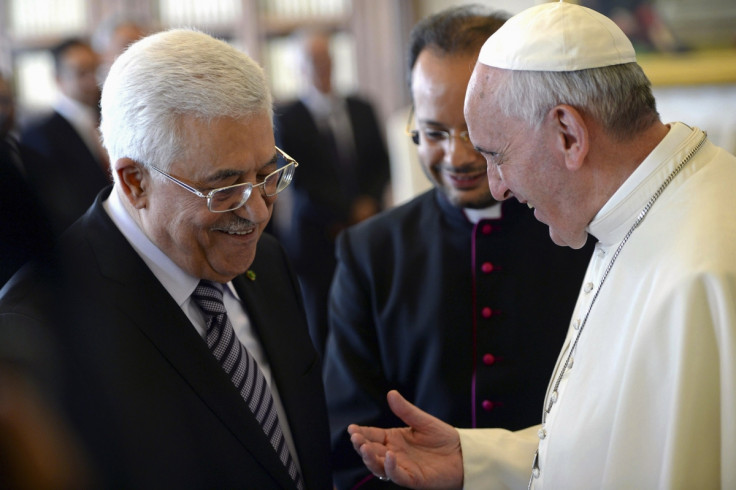Pope Francis Arrives in Jordan on First Leg of Middle East Tour

Pope Francis has arrived in Jordan on the first leg of his four-day visit to the Holy Land amidst security threats in the troubled region.
In Amman, the Pope will pay a courtesy call on King Abdullah II and Queen Rania, after which he will proceed to a mass at Amman's international stadium; later he will visit the supposed baptism site of Jesus in Jordan Valley.
The pontiff will meet Christians and Muslims exiled from their homes in Syria and pray with the refugees on the eastern bank of the river Jordan. The next day, he will fly to Bethlehem on the West Bank to celebrate mass in Manger Square.
On the third day, he will head to Israel. In Jerusalem, he will meet the Ecumenical Patriarch of Constantinople to mark the 50th anniversary of a historic meeting between Pope Paul VI and Patriarch Athenagoras.
The next day, he will meet the Grand Mufti of Jerusalem and celebrate mass at the foot of the Mount of Olives before leaving for Rome in the evening.
The Vatican accepted the Palestinian territories as the "State of Palestine" in 2012, and prior to the Pope's visit maintained that Palestine has the right to a "sovereign and independent" state.
Naim Ateek, an Anglican priest and founder of Palestinian liberation theology, said that the visit was an opportunity for the Pope to speak for the Palestinian people.
"We feel he has been able to speak about the poor in Latin America," Ateek told TIME. "Now we would like to see him speak about the oppressed in Palestine."
Pope breaks tradition
The Pope seems to have broken many traditions by travelling to the region in an open car, flying directly to Bethlehem bypassing Israel, and inviting a rabbi and an imam to travel with him.
"I really hope that the fruit will be to help politicians and all people of good will take courageous decisions on the path to peace," Cardinal Pietro Parolin said in an interview posted on the Vatican Radio website.
Parolin was asked about the political agenda of the visit, to which he replied that the talks will be directed by Vatican policy.
"On the one hand, Israel's right to exist in peace and security within internationally recognised boundaries. And, on the other, the Palestinian people's right to have a homeland, sovereign and independent, the right to move around freely, the right to live in dignity," he said.
The Vatican's decision to recognise the state of Palestine had upset Israel, but relations have recovered in the last two years.
Pope's balancing act
According to analysts, the Pope's attempt to placate both sides may instead ruffle feathers. His decision to fly to the West Bank by helicopter may go down well with Palestine but not with Israel.
Jewish religious radicals are said to be irked by the government's decision to allow Pope Francis to hold a mass in Cenacle or the Upper Room on Mount Zion, a site sacred to both Jews and Christians.
On the other hand, his paying homage to Theodor Herzl, the founder of the state of Israel, may rile Palestinians.
"Since he has chosen to do this, I wonder, what is the message he is going to balance it out with when he is speaking about the Palestinians?" theologian Ateek said.
"Maybe he has done this in order to balance things out. If that is the case, that's fine, but if he goes to Herzl but does not condemn all the injustices and oppression of the people, of the Palestinians, then that is going to be a missed opportunity."
"You need to look at the gestures, not just at the words," said Patriarch Fouad Twal, the Catholic leader of Jerusalem. "We cannot have a visit of His Holiness without a political dimension."
© Copyright IBTimes 2025. All rights reserved.





















